Reunification
For up-to-date information regarding the reunification of Penn State's two law schools, please click here.
For up-to-date information regarding the reunification of Penn State's two law schools, please click here.
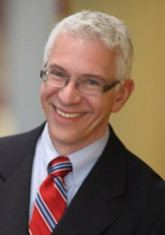
Professor Larry Catá Backer immigrated with his family from Cuba when he was young, growing up in the Cuban American community in Miami. Professor Backer focuses his research on governance-related issues of globalization and the constitutional theories of public and private governance, with an emphasis on institutional frameworks for public-private law governance systems. Recent work centers on issues of corporate social responsibility, mixed regulatory systems and regulatory governance (especially touching on SOEs and SWFs), the emerging problems of polycentricity where multiple systems might be simultaneously applied to a single issue or event, and problems of translation between Western and Marxist Leninist (especially Chinese and Cuban) constitutional systems.

Professor Copeland focuses her scholarship on white collar crime and health care fraud and abuse. Prior to joining Penn State she clerked for Judge David H. Coar of the U.S. District Court for the Northern District of Illinois and Judge Damon J. Keith of the U.S. Court of Appeals for the Sixth Circuit and practiced at Sidley Austin LLP in Washington, D.C. Her practice focused on white collar criminal defense and constitutional litigation. As part of her white collar crime practice, she represented pharmaceutical companies in health care fraud and abuse prosecutions.
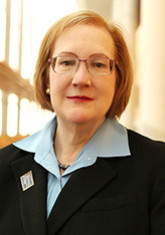
Professor Beth Farmer’s research interests include U.S. and foreign antitrust and trade regulation law, issues of federalism, and comparative competition policy. She has served as a non-governmental advisor and rapporteur for the International Competition Network annual conferences in 2010 (Istanbul) and 2009 (Zurich) and is currently working with the Agency Effectiveness Working Group on a chapter for the Competition Agency Practices Manual that will address agency prioritization and strategic planning, project management techniques and project evaluation.
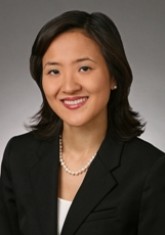
Professor Lee’s research interests are in the fields of financial regulation and commercial law, with a focus on strategic decision-making and the impact of legal rules and social norms on human behavior. Prior to joining Penn State Law, she was a senior regional attorney with the FDIC in Chicago, where she advised on the supervision of troubled banks and conducted prohibition and removal actions against bank officers and directors. Previous to that, she was an associate in the securities practice group of Wilmer Cutler Pickering Hale and Dorr LLP, where she counseled broker-dealers and other financial institutions on compliance with federal securities laws and self-regulatory organization rules.
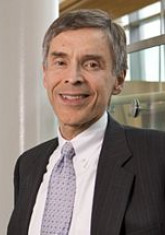
Professor John Lopatka is one of the nation's leading antitrust scholars, having published over forty articles in the areas of antitrust, economic analysis of law, and regulated industries. He co-authored the multi-volume treatise Federal Antitrust Law and The Microsoft Case: Antitrust, High Technology, and Consumer Welfare, which was published by the University of Chicago Press in 2007.

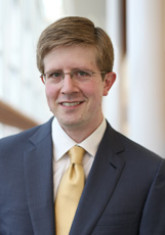
Professor James Puckett teaches and writes primarily in the area of federal income taxation. Professor Puckett’s research interests include tax administration and distributive justice. His current research projects explore issues at the intersection of taxation and federal and state administrative law, as well as professional responsibility, especially relating to uncertain tax positions. His recent scholarship has examined equity issues relating to how the family and certain personal expenses affect tax liability. He has taught federal income tax, international tax, and tax policy.
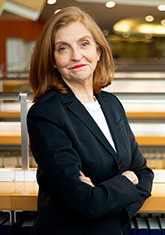
Marie T. Reilly is a professor at Penn State Law and an expert in bankruptcy and commercial law. She served as Associate Dean for Academic Affairs from 2008 to 2015. Prior to joining the Penn State faculty, she was a professor at the University of South Carolina School of Law. Before she became a law teacher, she practiced law with Williams & Connolly in Washington, D.C., and Schiff Hardin in Chicago, Illinois. She teaches contracts, bankruptcy, and commercial law subjects and co-teaches a bootcamp-style course on business fundamentals for law students. Her scholarship considers legal responses to insolvency problems in light of economic, political, and social influences over time. She is a co-author of a law school casebook on secured transactions.
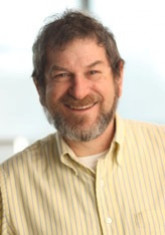
Professor Ross teaches and writes in the disparate areas of Sports Law, Comparative Constitutional Law, and Statutory Interpretation. He clerked for Hon. Ruth Bader Ginsburg in her first year on the U.S. Court of Appeals for the D. C. Circuit, served as minority counsel for the Committee on the Judiciary of the U.S. Senate, and worked as an attorney for the Federal Trade Commission and the U.S. Department of Justice. He has provided expert testimony and advice on sports antitrust issues to governmental entities and sports leagues and players associations around the world, and has consulted on sports league design for professional sports organizations in rugby, ice hockey, cricket, and motorcycle racing.
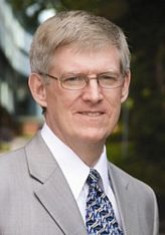
Professor Scott has a wide range of teaching and scholarly interests, but his focus is in intellectual property and on the intersection of the worlds of artistic and scientific expression and the law. He has given particular attention to the protection of cultural properties in both Europe and Asia, to domestic and international entertainment issues with an emphasis on music, and to the representation of the individual professional athlete. He received a Fulbright Scholar award in 2004-2005 for his research in the protection of cultural and ethnographic properties in Asia, and he has been a visiting professor and scholar at the University of Delaware Graduate College of Marine Studies in the fields of biotechnology and intellectual property law.

Professor Tom Sharbaugh brings more than 35 years of practice experience to the classroom. Before joining Penn State Law, Tom was the firm-wide managing partner of operations at the Morgan Lewis & Bockius LLP law firm, based in the firm’s Philadelphia office. In this position, which he held for 15 years, Tom was responsible for the day-to-day operations of the global law firm with more than 3,100 personnel. As a partner in the firm's Business & Finance Practice Group, he represented a wide variety of clients in transactional and corporate matters, including private equity funds in M&A and investment transactions.
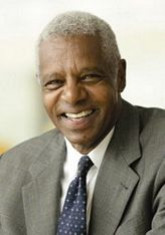
Professor Thompson directs Penn State’s Center for the Study of Mergers and Acquisitions and teaches on the corporate, securities, tax, and antitrust aspects of mergers and acquisitions as well as international tax, investment banking, taxation of business entities, and economic growth policy. Professor Thompson has been a tax policy advisor, on behalf of the U.S. Treasure Tax Assistance Office, to the South African Ministry of Finance in Pretoria, South Africa.
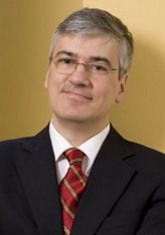
Professor Tridimas specializes in European Union and financial law. He is one of the most frequently quoted authors by the European Court of Justice and, on matters of EU law, by English courts. His research covers all aspects of EU law, including, constitutional law, judicial protection, and the substantive law of the EU. He has advised state institutions and corporations in relation to the Eurozone crisis and has given press and television interviews in Europe and the US. He served as senior legal advisor to the European Union and chaired the committee responsible for drafting the treaty of Accession to the EU of the Central and Eastern European States (2003).